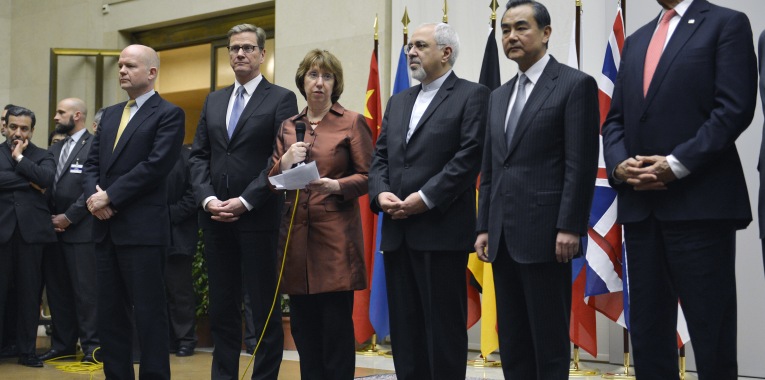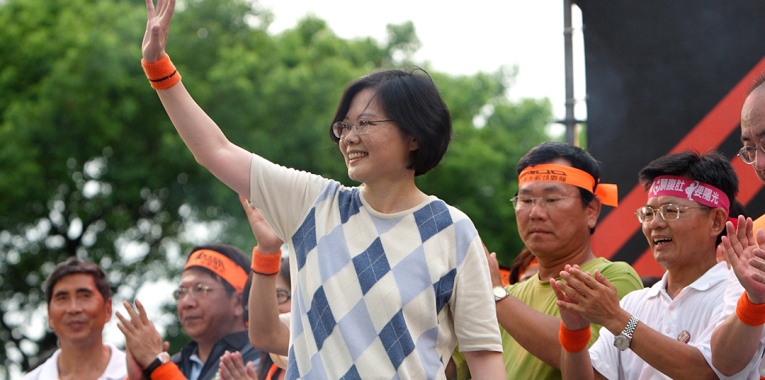In January, Tsai Ing-wen was elected president of Taiwan (officially known as the Republic of China). She is the first woman to hold the office, but more importantly, she will be the first president from the pro-independence Democratic Progress Party (DPP) that also has a majority in the legislature. For the first time since WWII, Taiwan will not be (partly) ruled by the pro-reunification Kuomintang (KMT), the party that is the remnant of the ruling elite of China before the communists took over in 1949.
Taiwan’s status is incomparable to the situation in Hong Kong or Macau, as for them the inclusion in China is just a matter of time. They have been granted autonomy until at least 2047 and 2049 respectively, fifty years after being released as a colony. Taiwan never made any agreement with (Mainland) China over its autonomy and its mere existence is challenged by China. Indeed, they are still officially in war.
The issue of Taiwan (Republic of China) may be one of the most important challenging China’s (People’s Republic of China) growing hegemony in East Asia in the decades to come. Their official names both involve “China”, and a half century of fighting over who is the true China led to the odd status quo where they agree on the fact that there can be only one China. This includes the territories governed by both China and Taiwan, but who will rule the other is interpreted by each country differently.
How did it get so far? A brief recap of the Republic of China’s history 1860 – 2000.
After the Opium wars in 1860 China’s Qing dynasty was forced to sign a number of highly unequal treaties with Western Powers (US, UK, France and Russia). A subsequent war with Japan saw Taiwan falling into Japanese hands. In China, discontent amongst the population led to a violent rebellion in 1900 (oppressed by the Western powers, plus Japan, Italy, Germany and Austria-Hungary; the Eight-Nation Alliance) and a revolution in 1912, marking the end of imperial China and Western influence.
The Republic of China (ROC) was born, and long-standing revolutionary in exile Sun Yat-sen became the new president. For political buffs, the ROC has separation of five powers, rather than Montesquieu’s three.
Sun had big dreams for China. He founded the KMT, the political party that ruled China until WWII and afterwards Taiwan for the most time until the elections last January. He is still seen as a founding father in both Taiwan and China.
Sun Yat-sen dreamt of democracy, but faced many setbacks, with local warlords declaring independence of their provinces. After years of political chaos, Sun decided that only by force could he keep the country together. This war was initiated by Chiang Kai-shek, who, after Sun’s death of cancer, took over the KMT leadership and became de facto president of China.
However, in order to defeat the warlords properly, the KMT needed the help of the newly founded Communist Party of China (CPC). By 1928 the country was finally united again, but not for long.
Revolutionary signals from Russia’s communist leaders directed towards the CPC prompted Chiang to suppress the communists, starting a new civil war. Meanwhile, Japan’s expansionism in WWII only added to the chaos. Suspending the civil war for four years, the KMT and the CPC collaborated to fight the Japanese. Finally defeating Japan with the help of the US, Taiwan was being given to the KMT after 60 years of Japanese rule. After WWII ended and the US pulled out, the civil war escalated again, and the KMT was slowly being defeated by the CPC.
After a few decisive battles in 1949, the CPC took over control in most of China, and Chiang Kai-shek fled to Taiwan with hundreds of thousands of troops and two million refugees from the old establishment, taking with him all of China’s gold reserves.
Taipei became the temporary capital (it still is, as the constitution of Taiwan still states Nanjing (in Mainland China) to be the official capital).
While the CPC became occupied with a war with South Korea, the US promised backing of the KMT in Taiwan, leading to today’s status quo. The KMT consequently ruled Taiwan with an iron fist, violently suppressing any resistance from its people and only lifting martial law in 1987 (the longest period any country has been ruled under martial law).
A transition to democracy started in the 1980s, with the first direct presidential elections in 1996. The DPP, founded (illegally) in 1986, was able to acquire presidency in 2000, though was faced with a KMT opposition majority in parliament. Now, for the first time, the DPP will have both the presidency and an absolute majority in parliament.
Past decades
Essentially a two party system, Taiwanese politics has evolved around the DPP and KMT for the past twenty years or so. With Taiwanese identity (as opposed to Chinese) becoming stronger with the younger generations, the DPP did increasingly well in the elections. A major setback came in 2009, when the first DPP president Chen Shui-bian was jailed for corruption.
The KMT won the following elections and the next president, Ma Ying-jeou, became known for his pro-China policies. Ma was hinting at reunification with China as a long-term goal, and many found his policies brought the PRC’s influence eerily close. When he tried to push a trade deal with China without debate through the legislature, where the KMT held a comfortable majority, it sparked large-scale student protests.
Largely peacefully, students occupied the parliament for two weeks. Over a hundred thousand (some say 500,000) people joined for a demonstration. Until now, the trade deal has not been ratified. This sentiment paved the way for a new DPP presidency, won in January 2016, which for the first time comes with a majority in the legislature.
One China, but which?
In the 1992 Consensus, China and Taiwan agreed to disagree on this issue. While China calls itself the People’s Republic of China (PRC), Taiwan is officially still named the Republic of China (ROC). In this complicated map you can find all the land that Taiwan claims to be part of its territory, the ROC. It covers most of the PRC and Mongolia, and bits of other countries, including the nine dashed line. For those following the Senkaku/Diaoyu dispute, Taiwan also claims the islands, calling them Tiaoyutai.
The 1992 Consensus also made it impossible for other countries to recognise both countries at the same time (there is only one China after all). And because a 1971 UN resolution accepted the PRC as the legitimate representative of China in the Security Council, only a handful of countries (the Holy See being the only European one) recognise the ROC rather than the PRC (although many more have active informal relations).
Why is China, at war with the KMT, not happy with the DPP?
Both China and the KMT want reunification, albeit disagree over who rules who. The DPP, however, wants independence in the long run. It ultimately wants to give up claims on China and beyond and lose the name Republic of China in favour of Taiwan. In any other conflict, this would be seen as a first step towards peace, and would be cheered by the West. In the spirit of Orwell’s 1984 however, it apparently means war.
While the previous KMT government grew closer to China, albeit on its own terms, the DPP wants more distance. Instead of the trade association with China, it wants to join the Trans-Pacific Partnership (TPP; China is not a member). A sign that other members welcome this is the gesture by Japan’s president, Shinzo Abe, when he was the first to congratulate Tsai Ing-wen on her victory.
The fear is that if Taiwan doesn’t move closer to China by itself, China will come and get what it wants by force. Taiwanese people are increasingly identifying themselves as Taiwanese, rather than Chinese, showing the cultural divergence between the two countries. More economic distance would further widen this gap. If Taiwan stops calling itself Republic of China and abandons the One China policy, it creates the possibility of opening up official relations with other countries. This could give Taiwan a more formal international status, prompting China to take action before it is too late.
Stand up for democracy
It is clear that Taiwan works. Taiwan is de facto an independent country and so is China. A working democracy, Taiwan is a showcase that Asian values and democracy are not mutually exclusive. Helping the people of Taiwan is therefore in our own interest, and is it an example of ethical foreign policy.
While the status quo works for now, a more powerful China might at one point want to try out its strength on Taiwan. The current Western world’s (mainly Europe’s) reluctance to touch the issue will only pave the way for China to take Taiwan by force. The US is the only real obstacle for China to take Taiwan, because even though the US does not officially recognise Taiwan, the Taiwan Relations Act provides de facto diplomatic relations including arms supplies for Taiwan’s self-defence. However, in the future Taiwan might not be able to rely on the US military alone.
A recent response from the UK government to a petition to recognise Taiwan shows that the UK has all but official relations with Taiwan. Possible economic sanctions from China are all that stand in the way of other countries getting involved politically (as is the case with China’s other international/human rights violations).
China´s economic (and actual) weapons are only bound to get more powerful. The new election results therefore come just in time and just as China is getting into economic trouble. The victory of Tsai Ing-wen and the DPP should be considered an act of peace, not war. Making the right interpretation now is important and may shape the future. Will the world save a country that successfully made the transition to democracy, or let pressure by autocratic rulers destroy its values for the sake of economic security?
Joris Bucker is editor for the Business & Economics policy centre.







